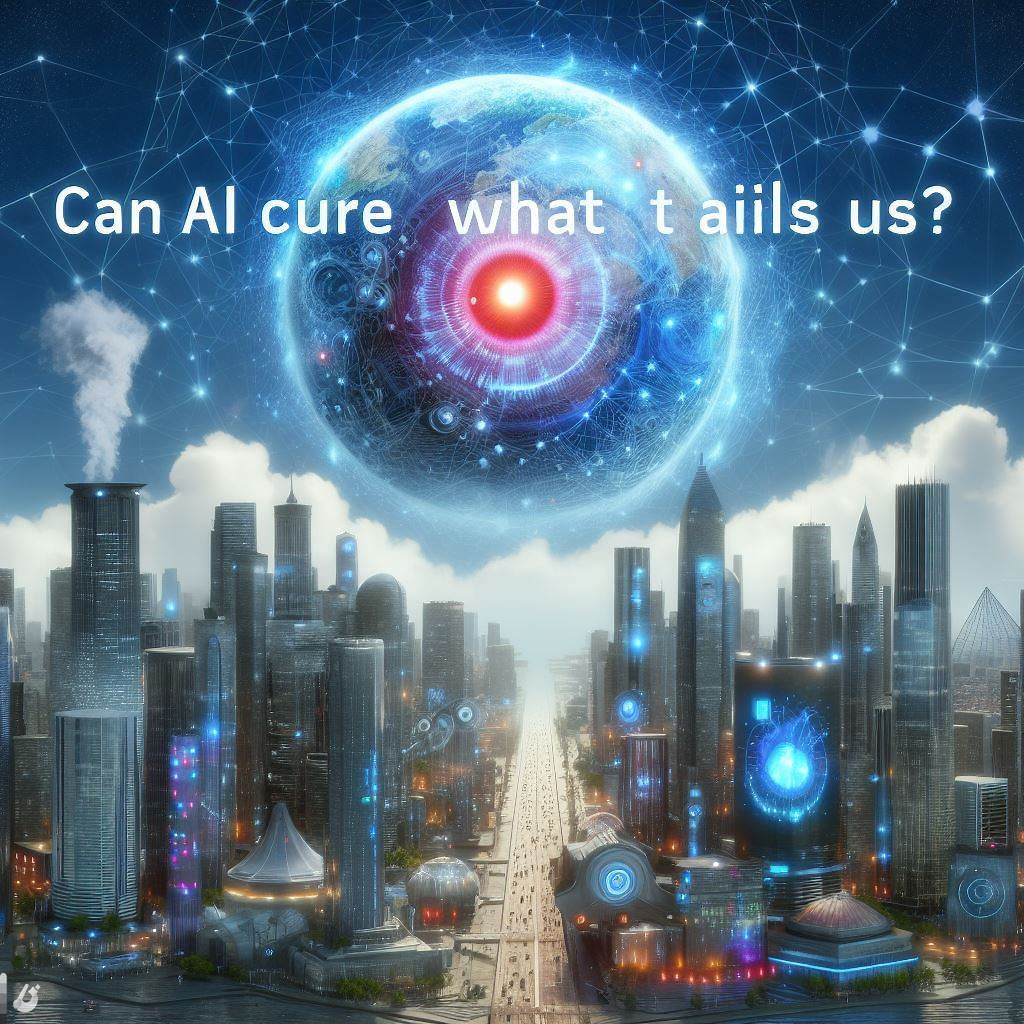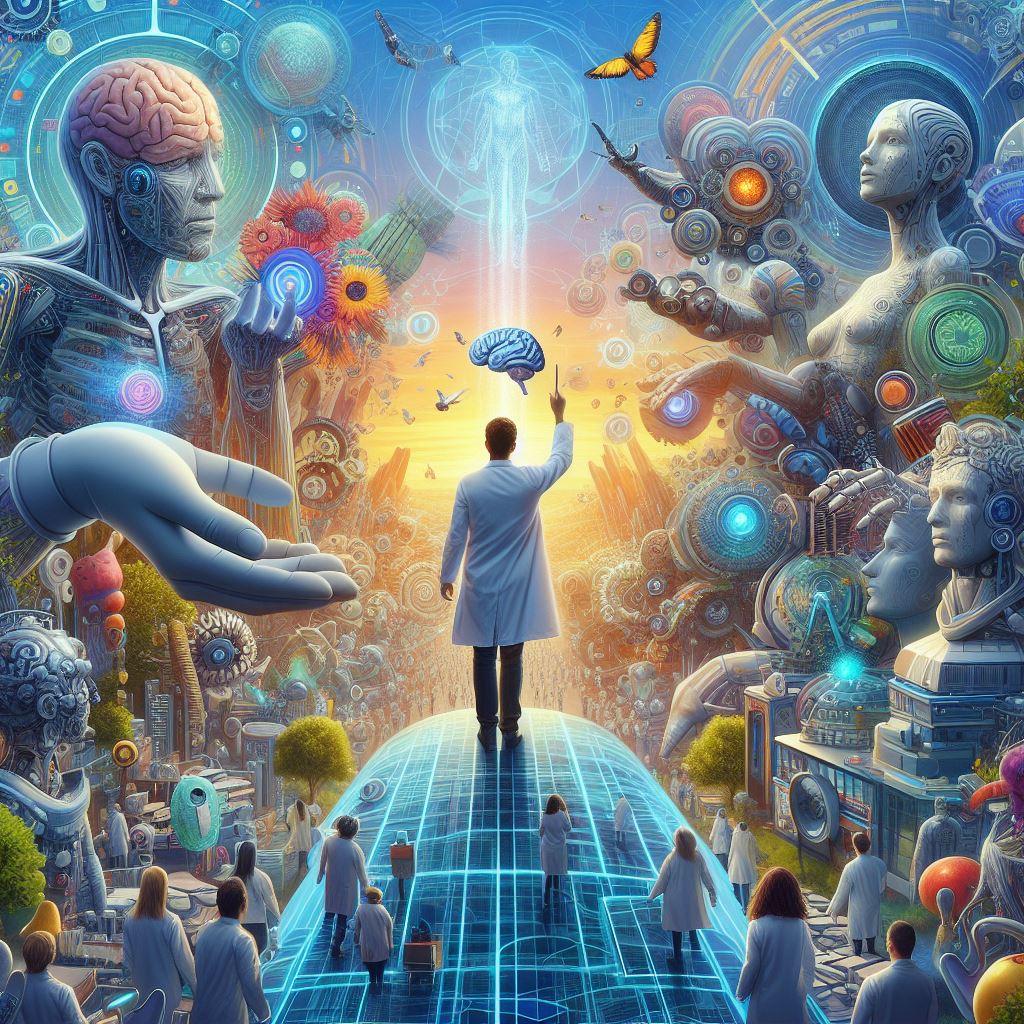Introduction
Can AI Cure is transforming the world of healthcare in many ways. From diagnosing diseases to discovering drugs, from personalizing treatments to improving outcomes, AI can offer various opportunities for enhancing the quality, efficiency, and accessibility of healthcare. But can AI also cure what ails us? Can AI solve the complex and diverse challenges that we face in our health and well-being? The answer is not so simple, and in this blog post, we will explore some of the opportunities and limitations of AI in healthcare.
We will then review some of the current applications of AI in healthcare, and how they can help us diagnose diseases, discover drugs, personalize treatments, and improve outcomes. It will also discuss some of the challenges and limitations of AI in healthcare, such as data quality and availability, ethical and social implications, and human-AI interaction and collaboration. We will conclude by highlighting some of the best practices and recommendations for using AI responsibly and wisely in healthcare, and ensuring that it is aligned with our values and goals.
AI can be a powerful tool to help us improve healthcare, but we also need to be aware of its limitations and challenges. AI can help us enhance the quality, efficiency, and accessibility of healthcare, and potentially cure what ails us. But AI cannot replace human intelligence, judgment, and empathy.
What are some examples of AI in medical research?
AI in medical research is a broad and rapidly evolving field that covers various applications, such as diagnosing diseases, discovering drugs, personalizing treatments, and improving outcomes.
Here are some examples of AI in medical research:
- IBM Watson Health uses AI to help doctors diagnose and treat cancer, by providing evidence-based recommendations and insights.
- BenevolentAI uses AI to help discover new drugs for various diseases, such as Parkinson’s, Alzheimer’s, or COVID-19, by analyzing vast amounts of scientific literature and data, and generating novel hypotheses and insights.
- DeepMind uses AI to help predict the structure of proteins, which are essential for understanding and treating diseases, by using deep learning and reinforcement learning techniques.
- Tempus uses AI to help personalize cancer treatments, by analyzing the genomic and clinical data of each patient, and matching them with the best therapies and clinical trials.
- Woebot uses AI to help personalize mental health treatments, by providing cognitive behavioral therapy (CBT) through a chatbot, and adapting to the mood, goals, and feedback of each user.
These are some of the examples of AI in medical research, but there are many more. AI can be a powerful tool to help us improve healthcare, but we also need to be aware of its limitations and challenges, such as data quality and availability, ethical and social implications, and human-AI interaction and collaboration.
Opportunities of AI in Healthcare
AI is a branch of computer science that aims to create machines and systems that can perform tasks that normally require human intelligence, such as understanding language, recognizing images, or making decisions.
AI can offer various opportunities for improving healthcare, such as:
- Diagnosing diseases. AI can help doctors and patients diagnose diseases faster, more accurately, and more affordably, by analyzing various types of data, such as medical records, images, or biosensors. For example, IBM Watson Health uses AI to help doctors diagnose and treat cancer, by providing evidence-based recommendations and insights. Ada uses AI to help patients diagnose their symptoms, by asking them questions and providing possible causes and next steps.
- Discovering drugs. AI can help researchers and pharmaceutical companies discover new drugs and therapies, by accelerating the drug discovery process, reducing the costs and risks, and increasing the success rates. For example, BenevolentAI uses AI to help discover new drugs for various diseases, such as Parkinson’s, Alzheimer’s, or COVID-19, by analyzing vast amounts of scientific literature and data, and generating novel hypotheses and insights. DeepMind uses AI to help predict the structure of proteins, which are essential for understanding and treating diseases, by using deep learning and reinforcement learning techniques.
- Personalizing treatments. AI can help doctors and patients personalize treatments, by tailoring them to the individual characteristics, preferences, and needs of each patient. For example, Tempus uses AI to help personalize cancer treatments, by analyzing the genomic and clinical data of each patient, and matching them with the best therapies and clinical trials. Woebot uses AI to help personalize mental health treatments, by providing cognitive behavioral therapy (CBT) through a chatbot, and adapting to the mood, goals, and feedback of each user.
- Improving outcomes. AI can help doctors and patients improve outcomes, by monitoring, predicting, and preventing the progression and complications of diseases, and by enhancing the quality and safety of care. For example, AliveCor uses AI to help improve cardiac outcomes, by providing a portable electrocardiogram (ECG) device that can detect and alert users of irregular heart rhythms, such as atrial fibrillation. Suki uses AI to help improve clinical outcomes, by providing a voice assistant that can help doctors with documentation, ordering, and billing, and reduce their administrative burden and burnout.
What are some challenges of using AI in medical research?
Can AI Cure in medical research is a promising field that can help us improve healthcare, but it also faces some challenges and limitations. Some of the challenges of using AI in medical research are:
- Data quality and availability. AI relies on large amounts of data to learn and perform tasks, but the data may not be always accurate, complete, or representative of the real-world situations. For example, the data may contain errors, biases, or gaps, or may not reflect the diversity and complexity of the patients and diseases. This can affect the reliability and validity of the AI models and predictions, and lead to inaccurate or harmful outcomes.
- Ethical and social implications. AI involves making decisions that can have significant impacts on the health and well-being of people, but the decisions may not be always transparent, explainable, or accountable. For example, the AI models may not reveal how or why they make certain predictions or recommendations, or may not be subject to human oversight or regulation. This can raise ethical and social issues, such as privacy, consent, fairness, or liability.
- Human-AI interaction and collaboration. AI can augment and assist human intelligence, but it cannot replace it. AI still needs human input, feedback, and supervision to perform tasks, and human skills, judgment, and empathy to provide care. For example, the AI models may not be able to handle complex or uncertain situations, or may not be able to communicate or empathize with the patients and their families. This requires effective and efficient human-AI interaction and collaboration, which can be challenging to achieve
How can I learn more about the ethics of AI in healthcare?
Can AI Cure in healthcare is an important and emerging topic that explores the moral and social implications of using AI to improve health and well-being. If you want to learn more about the ethics of AI in healthcare, you can:
- Read the WHO guidance on Ethics and governance of artificial intelligence for health, which provides a comprehensive and practical framework for ensuring that AI is designed and used in a way that respects human rights and values.
- Explore the Legal and Ethical Consideration in Artificial Intelligence in Healthcare article, which discusses some of the key legal and ethical issues that arise from the use of AI in healthcare, such as data protection, consent, liability, and accountability.
- Check out the Ethics of AI in healthcare blog post, which offers some best practices for ensuring that AI is fair and ethical in healthcare, such as establishing accountability and liability, understanding the limitations and accuracy of AI-driven systems, and establishing transparency and understanding for AI-generated recommendations.
- Review the Artificial intelligence for good health: a scoping review of the ethics literature paper, which provides a systematic overview of the existing ethics literature on AI in healthcare, and identifies the common ethical concerns and challenges, such as privacy, trust, bias, and human-AI interaction
Limitations of AI in Healthcare
AI can be a powerful tool to help us improve healthcare, but it also has some limitations and challenges. Some of the limitations of AI in healthcare are:
- Data quality and availability. AI relies on large amounts of data to learn and perform tasks, but the data may not be always accurate, complete, or representative of the real-world situations. For example, the data may contain errors, biases, or gaps, or may not reflect the diversity and complexity of the patients and diseases. This can affect the reliability and validity of the AI models and predictions, and lead to inaccurate or harmful outcomes .
- Ethical and social implications. AI involves making decisions that can have significant impacts on the health and well-being of people, but the decisions may not be always transparent, explainable, or accountable. For example, the AI models may not reveal how or why they make certain predictions or recommendations, or may not be subject to human oversight or regulation. This can raise ethical and social issues, such as privacy, consent, fairness, or liability .
- Human-AI interaction and collaboration. AI can augment and assist human intelligence, but it cannot replace it. AI still needs human input, feedback, and supervision to perform tasks, and human skills, judgment, and empathy to provide care. For example, the AI models may not be able to handle complex or uncertain situations, or may not be able to communicate or empathize with the patients and their families. This requires effective and efficient human-AI interaction and collaboration, which can be challenging to achieve .

Conclusion
Can AI Cure can offer various opportunities for improving healthcare, by helping us diagnose diseases, discover drugs, personalize treatments, and improve outcomes. AI can help us enhance the quality, efficiency, and accessibility of healthcare, and potentially cure what ails us. However, AI also has some limitations and challenges, such as data quality and availability, ethical and social implications, and human-AI interaction and collaboration. AI can help us improve healthcare, but we need to use it responsibly and wisely, and ensure that it is aligned with our values and goals.


oiuykd
e7s5ub